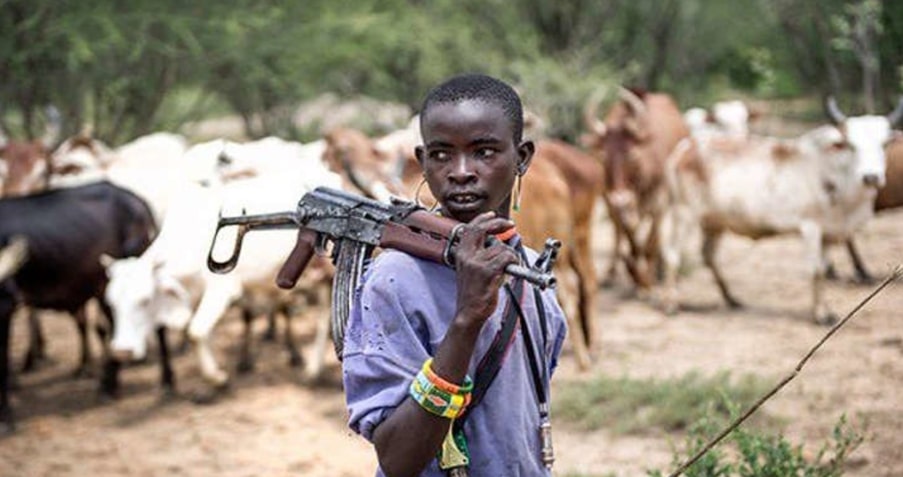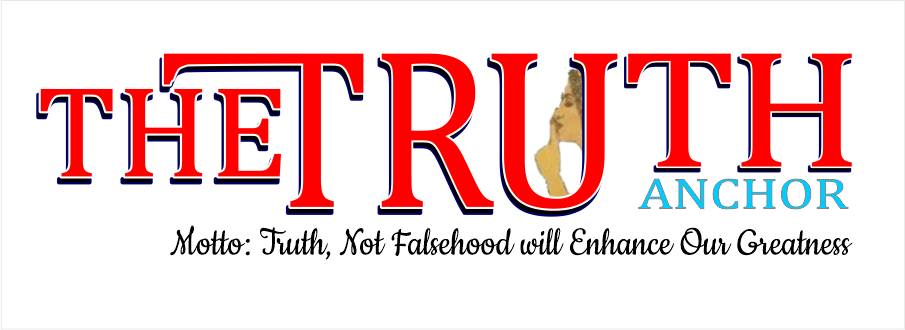
There is no doubt that this country is facing grave security crisis that is seriously begging for lasting solutions. Apart from the Boko Haram and its affiliates in the north, there are numerous security threats all over the country. Some of the conflicts have to do with the Fulani herders over settlements, grazing areas and outright kidnapping for ransom. Investigations and recent happenings have revealed that some criminally minded community people are part of the kidnapping syndicate, especially in the Southern part of the country. They connive with these criminals, give them useful information on how to kidnap their brothers and sisters, and thereafter share from the ransom.
In the Middle Belt, Plateau and Benue states to be specific, the crisis that is ranging has not been abated till this moment and solution has not been found. The Fulani and the Beroms have been in devastating communal bloodbath with heavy casualties on both sides for years now and despite the presence of security agencies, peace has not returned to the zone.
The protracted guerrilla-fashioned violence has been characterized by deadly midnight attacks and killing of farmers and destruction of farmlands. Thousands have been killed, as the violence persisted in spite of measures such as heavy military presence, imposition of curfew in affected areas, as well as peace and security meetings organised by the military.
The Special Task Force (STF), which oversees efforts to restore peace in Plateau, has also initiated various measures, including medical outreaches, sports competitions and other social functions, to promote togetherness and foster peace; all to no avail.
.In Benue State, no fewer than 1000 women, children and farmers were slaughtered in the last few weeks following the renewed bloodbath and invasion of communities in Plateau and Benue States by suspected Fulani herdsmen
Indigenes of these areas have been lamenting that despite efforts to stem the crisis in the hinterland of both states, cases of silent killings and destruction of property are still being carried out on the natives by these dare devils.
All these attacks signify a deliberate move to wipe out a particular race. It is unfortunate and painful that these people have become refugees in their fatherland as a result of incessant Fulani invasion.
An investigation carried out shows that those areas in Plateau and Benue states have been deserted. The unfortunate aspect is that these people being attacked on regular basis are farmers, who produce food for the entire population. The suspected herdsmen invade their lands, rape their women found in the farms, slaughter their men and deprive them of their ancestral homes.
The Fulani herders have continued to attack villages at night with sophisticated gun; AK47, SMGs and MGs.
Some Hausa people have argued that the Hausas and Fulani are two distinct tribes that inhabit the Northern Nigeria and most of the countries in West Africa, and that the Fulani are by occupation cattle headers, hence naturally are nomadic while the Hausas are not.
They went further to point out that it is only in Nigeria that the two tribes are treated as one ethnic group, maintaining that the typical Hausa man is peace loving while a typical Fulani man is violent driven.
They believe and maintained that the Fulani within and outside the country are the brain behind the Boko Haram problem facing the country today and not the Hausas or Muslims.
Historically, the Fulani have been a migrant pastoral people. They originated from either North Africa or the Middle East and then moved across Africa. Now they are found in sixteen countries across the Sahel belt from Senegal in the west to Sudan in the east.
The Fulani are grouped and named according to their location, occupation and dialect. Accordingly, there are five major groups divided into many smaller ones. There are three distinctive types of people among the Fulani – nomads, semi-nomads and a sedentary population.
The literacy rate among the Fulani is low, especially among the nomads. The Fulani people are almost entirely Muslims. In fact, they helped to spread Islam across Africa as they migrated.
In Nigeria, the Fulani are often categorized with the Hausas as a conglomerated ethnic group- Hausa-Fulani.
Events and happenings in the Middle belt have shown that the Fulani herdsmen are in the habit of claiming ownership of any place they are allowed to occupy, and they do it through serious violent attack on the natives.
Though the Delta State Government has done well by equipping our security personnel with relevant equipment and charged them to ensure safety of its citizens, the proper implementation lies with our security operatives, who if not adequately monitored would still collect money and flout the orders of the State Government.
Adequate security measures should be put in place to check the influx of the Fulani herders into the State.
Deltans should as a matter of great concern, take the issue of security seriously and not wait for government to do the job alone because as the saying goes ‘security is everyone’s business.’

Why Aniocha/Oshimili Must Rally Behind Rt. Hon. Ndudi Elumelu and Governor Sheriff for Vision 2027
As we look ahead to the political horizon of 2027, one truth stands clear for the people of Aniocha/Oshimili and Delta State at large: leadership matters. Not just leadership by title, but leadership by vision, performance, and a heart committed to the people. In this light, Rt. Hon. Ndudi Elumelu and Governor Sheriff Oborevwori stand out not as just politicians, but as builders of progress.
A Proven Voice for Aniocha/Oshimili: Rt. Hon. Ndudi Elumelu
Rt. Hon. Ndudi Elumelu is not new to service. His name has become synonymous with effective representation, human empowerment, and a relentless commitment to the development of Aniocha/Oshimili. As a former Minority Leader of the House of Representatives, Elumelu distinguished himself through bold advocacy, strategic constituency projects, and youth-focused initiatives.
From road rehabilitation projects to rural electrification, healthcare outreach to skills acquisition programs, Elumelu’s legacy is written not in speeches, but in the everyday improvements felt across communities in Delta North. He understands the grassroots. He listens. And, most importantly, he acts.
In a time when trust in public officials is low, Elumelu has managed to retain the loyalty and admiration of his people not by political gimmickry, but by tangible results.
The MORE Agenda in Action: Governor Sheriff Oborevwori
In less than two years in office, Governor Sheriff Oborevwori has shown what steady, people-first governance looks like. His “MORE Agenda” focused on Meaningful Development, Opportunities for All, Realistic Reforms, and Enhanced Peace and Security is not just a campaign slogan, but a working blueprint that is already transforming lives.
From massive infrastructure investments like road networks and bridges to education reforms and youth empowerment programs, Governor Sheriff has prioritized inclusive governance. His administration has shown that Delta State can be both peaceful and progressive under the right leadership.
Governor Sheriff’s ability to bring together various stakeholders traditional institutions, youth, women, and political actors also signals a maturing leadership style that puts unity before ego. That’s the kind of leadership Delta needs as we gear up for 2027.
Why Vision 2027 Needs Them Both
Vision 2027 isn’t just about winning an election; it’s about securing the future of Delta State. It’s about continuity. It’s about putting development before division. It’s about having tested leaders who won’t need time to “learn on the job,” but will hit the ground running.
Together, Elumelu and Sheriff bring experience, credibility, and grassroots connection. Elumelu understands the legislative machinery and has the vision to push policies that empower communities. Sheriff has shown he can manage resources efficiently and ensure that no region is left behind.
Their synergy can spark a new wave of transformation not just for Aniocha/Oshimili but for the entire state.
Now is not the time for political apathy or petty rivalry. The stakes are too high. As a region known for its intelligence, enterprise, and political relevance, Aniocha/Oshimili must take its rightful place in shaping the future. That means supporting leaders who have consistently proven their loyalty to the people.
It’s time to organize, mobilize, and energize every ward, every youth group, every women’s circle, and every community around Vision 2027. We must choose performance over promises. We must stand by leaders who have stood by us.
Support Rt. Hon. Ndudi Elumelu. Support Governor Sheriff Oborevwori. Support Vision 2027.